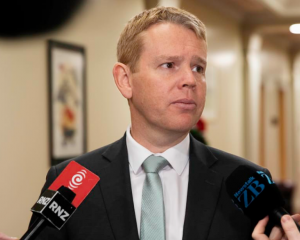
Research by the Commission for Financial Capability has found most Kiwis saw an improvement in their knowledge and attitude to personal finances between January and June.
More people were able to save and got up to speed with what was happening with their KiwiSaver accounts.
The research also found in general people felt better about their financial situation and were more confident they would have a comfortable retirement.
But the opposite appears to be the case for those aged between 18 and 35.
The percentage of young Kiwis who said they kept a close eye on their financial affairs dropped from 78 per cent in a March/April survey to 70 per cent by May/June.
That compared to 80 per cent across the wider adult population surveyed.
And those who considered money was there to be spent shot up from 29 per cent to 42 per cent compared to 27 per cent across the wider population.
Jane Wrightson, Retirement Commissioner and head of CFFC, said it was concerning that young people reported their spending and financial behaviour had deteriorated after lockdown in contrast to the rest of the population.
"This may be a reflection of younger workers bearing the brunt of job losses and income reduction. Their 'live for today' attitude is likely coming from the current uncertainty.
"It's important we recognise this and help younger New Zealanders imagine a better future for themselves."
The research is being released as part of Money Week which run from August 10 to 17 - a Government driven initiative aimed to increase people's awareness of their finances and what they can do to improve them.
These year's theme is about encouraging people to ask questions about money.
The commission received a flood of questions from the public when the country went into lockdown with most based around KiwiSaver, budgeting and debt.
Some of the most common questions on KiwiSaver included; who took my KiwiSaver money, can I use KiwiSaver to pay off debt and where does KiwiSaver money go?
Most people's KiwiSaver balances took a dive in March after global sharemarkets fell by around 30 per cent, prompting panic from some KiwiSaver members.
Markets have since bounced back prompting balances to recover.
The CFFC research found the percentage of people who didn't know which KiwiSaver scheme they were in fell from 30 per cent in January-February to 23 per cent in May-June.
Wrightson said the steep drop in KiwiSaver balances as the pandemic took hold globally in March may have shocked many account holders into paying attention to their fund for the first time.
"New Zealanders realised their KiwiSaver was not just a savings account, but also an investment fund, and had a crash course in how investments can ride a roller coaster depending on world events."
The survey also found the percentage of people able to save each month rose from 49 per cent in January-February to 54 per cent in May-June, and more people reported having between one and three months' worth of income to access in an emergency.
The percentage of people who thought NZ Super would not be enough to retire on dropped from 50 per cent to 42 per cent.
Financial hardship
But the research also found just under a quarter of New Zealanders came out of lockdown in financial hardship.
Of those surveyed in May and June 24 per cent had used a credit card, overdraft of borrowed money to buy food or pay expenses because they have run short of money.
One in five owed money after missing a payment on a loan with 11 per cent missing a credit card or store card payment and 6 per cent missing a payment on a personal loan from a bank or a finance company.
And 16 per cent owed money because they had missed a bill payment. It found 8 per cent had missed a payment on their power bill and 5 per cent had missed their rent payment or tv/broadband or phone bill.
The CFFC's financial capability Barometer survey interviewed 500 people a month over six months, then aggregated the 3000 responses into two-month blocks to detect if attitudes and knowledge around money were changing.










